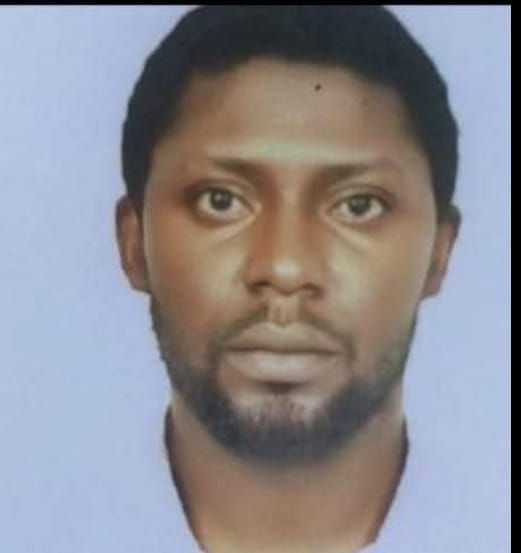Violations of Shia muslims’ rights by the Nigerian police and its impact on National stability, by Ahmad Shuaibu Isa
On the evening of December 27, 2024, while browsing AIT’s social media handle, I came across a press interview by Sheikh Ibraheem Zakzaky, the leader of the Islamic Movement in Nigeria.
In his address, he spoke about the Nigerian Police Force’s persistent attempts to prevent his followers from practising their religious activities in Abuja, which constitutes a direct violation of the right to freedom of religion.
The rights of Shia Muslims, particularly the disciples of Sheikh Zakzaky, have been repeatedly violated by the Nigerian police. This raises serious concerns, not only for the affected individuals but also for the broader stability of the nation. Shia Muslims in Nigeria, as part of the Islamic Movement, have faced harassment, violence, and restrictions on their religious practices by law enforcement authorities. These violations not only harm the Shia community but also have wider implications for the rule of law, social cohesion, and the stability of the state.
Legal Implications
1. Violation of Constitutional Rights
Nigeria’s Constitution guarantees freedom of religion (Section 38) and the right to peaceful assembly (Section 40). By persecuting Shia Muslims and restricting their religious practices, the Nigerian police violate these fundamental rights, undermining the legal framework that upholds individual freedoms.
2. International Law Violations
As a signatory to international human rights conventions like the International Covenant on Civil and Political Rights (ICCPR), Nigeria is obligated to protect religious freedom. The persecution of Shia Muslims by law enforcement contravenes these international obligations, exposing the country to global criticism and potential sanctions.
3. Rule of Law and Accountability
When law enforcement agencies operate outside the bounds of the law, they erode public trust in the justice system. The failure to hold police officers accountable for violations of Shia Muslims’ rights weakens the rule of law, making it increasingly difficult for citizens to respect or trust legal institutions.
READ ALSO: Shiite’s rally in Kano to condemn Israeli attacks on Lebanon (Pictures & Video)
Political and Social Implications
1. Sectarian Tensions
The persecution of Shia Muslims deepens sectarian divides at a time when national unity is crucial. It fosters an environment of religious intolerance and resentment, which can lead to inter-communal violence, undermining social cohesion and national unity.
2. Radicalization and Extremism
State-sanctioned violence or discrimination against any religious group can contribute to radicalization. Shia Muslims, particularly the youth, who are marginalized and oppressed, may seek radical ideologies as a response to their grievances. This risks exacerbating instability and violence within the nation.
I commend the Shia Muslims in Nigeria, under the leadership of Sheikh Ibraheem Zakzaky, for maintaining a peaceful stance despite being victims of oppression for nearly five decades.
3. Undermining Trust in Government
If the Nigerian police are seen as actively violating the rights of religious minorities, it can lead to a loss of public confidence in the government. Citizens may perceive the state as biased or unjust, leading to civil unrest and protests that could further threaten national security.
1. Erosion of Social Cohesion
Nigeria’s religious diversity, including a significant Shia Muslim population, is critical for national cohesion. The violation of their rights risks alienating entire sections of the population, which could lead to a fragmented society.
2. International Relations
Human rights abuses harm Nigeria’s international image and can strain diplomatic relations with countries that prioritise religious freedom and human rights. Such violations could result in reduced foreign investment, hinder international cooperation, and attract global scrutiny, ultimately undermining Nigeria’s development and stability.
3. Instability and Protests
Ongoing suppression of religious freedoms can lead to widespread protests and strikes, which, if left unchecked, may spiral out of control. This could create a vicious cycle of violence, making it harder for the government to maintain order and governance.
It is essential for the government to focus on economic policies that alleviate the suffering of Nigerians, tackle issues like kidnappings and banditry, rebuild the education sector, and create jobs for the youth. Victimizing the Shia Muslim community will only divert attention from these critical issues.
The violation of Shia Muslims’ rights by the Nigerian police has far-reaching consequences that extend beyond the immediate harm caused to the Shia community. It threatens the rule of law, exacerbates sectarian tensions, and jeopardises the stability of the state by undermining trust in the government and escalating the potential for conflict.
To preserve national unity and social peace, Nigeria must protect the rights of all religious minorities, including Shia Muslims, and hold law enforcement accountable for any violations.
Ahmad Shuaibu Isa can be reached via:
ahmadeesir214@gmail.com
Follow the Neptune Prime channel on WhatsApp:
Do you have breaking news, interview request, opinion, suggestion, or want your event covered? Email us at neptuneprime2233@gmail.com






